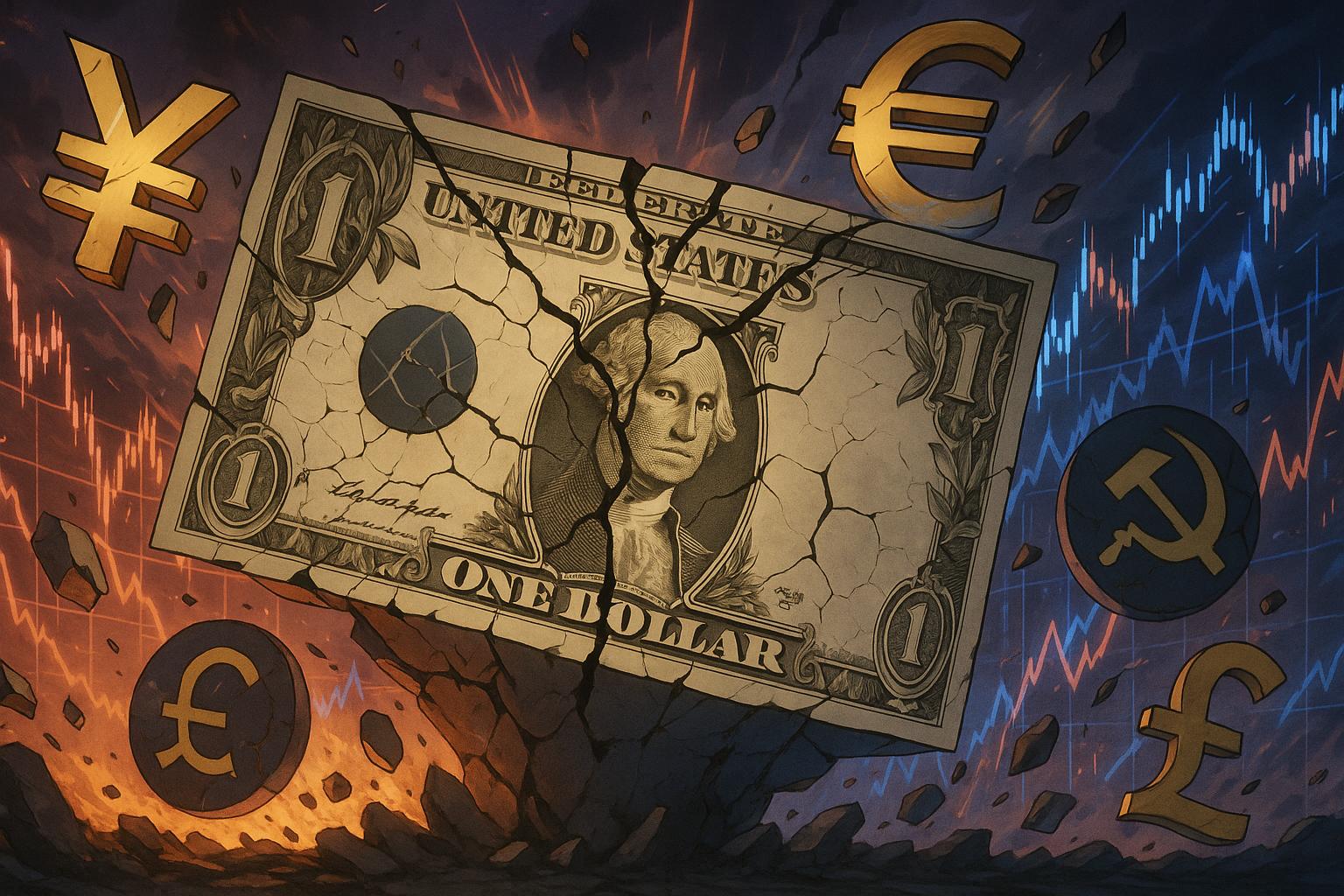The global conversation around the potential de-dollarization of economies has intensified as numerous nations position themselves to challenge the longstanding supremacy of the US dollar. As various geopolitical tensions and trade conflicts unfold, the implications for American financial markets could be severe, with analysts warning of a significant capital flight and the potential collapse of dollar dominance.
The United States is currently navigating its most significant monetary challenge since the dismantling of the Bretton Woods system in 1971. This evolving landscape is characterised by a striking decoupling of investor confidence from the stability that traditionally underpinned the dollar. Rising scepticism among investors regarding US assets has been exacerbated by perceived political and fiscal instability. Reports indicate that even amidst rising Treasury yields, the dollar has depreciated, raising troubling questions about its future as the world's reserve currency.
Recent protectionist trade policies have galvanised this shift, contributing to substantial capital flight from American markets. As the implications of these tariffs become more evident, market responses have been swift, leading to severe sell-offs as investor confidence wanes. The euro has emerged as a primary beneficiary of this transition, with investors seeking alternatives to the dollar. Such dynamics suggest that America may struggle to counteract de-dollarization unless significant economic restructuring occurs.
In this context, leaders from major global economies are directly challenging the dollar's dominance. Russian President Vladimir Putin has been vocal about the weaponization of the dollar, asserting that, “The dollar is being used as a weapon. We really see that this is so.” This sentiment echoes a broader sentiment among BRICS nations, who have reportedly increased trade in currencies other than the dollar, notably between Russia and China, where 95% of their trade is now conducted in non-dollar currencies. This represents a substantial challenge to the dollar's status, with implications that could ripple through key sectors of the international financial system.
Concerns about the dollar are not merely anecdotal; they are rooted in deep-seated structural weaknesses identified by numerous experts. Angelo DeCandia from Touro University emphasised that confidence in reserve currencies typically hinges on political stability. Current political volatility in the US, reflective of broader partisan conflicts over economic policy, threatens to erode this stability further. He noted, "The current political battles… do not inspire confidence in global users of the dollar,” highlighting the precarious balance of faith required to maintain global currency dominance.
Nevertheless, some analysts express tempered optimism regarding the resilience of the dollar. Bryan Kuderna from the Kuderna Financial Team suggests that while fears surrounding de-dollarization are valid, the dollar’s reliability, grounded in underlying economic strength, still holds sway in the financial world. He noted, “It’s a common fear during any trade war… but ultimately the USD is the reserve currency because of its reliability."
Navigating the path forward for America amidst potential de-dollarization will hinge on rapid adaptation and strategic policymaking. Historical transitions between global reserve currencies often occur amid geopolitical tensions; thus, maintaining economic fundamentals—a call echoed by analysts—becomes paramount. Alfonso Peccatiello from Macro Compass outlined that such transitions often involve substantial geopolitical shifts, further complicating the current landscape.
The critical question remains: can America successfully survive de-dollarization? Strategic diversification through trade moderation, fiscal responsibility, and bolstered international cooperation may mitigate the impact of growing currency competition. However, the window for effective policy intervention may be narrowing, necessitating a proactive stance before the consequences of capital flight become both irrevocable and threatening to the foundational ideas of US economic leadership.
As various nations incrementally reduce their reliance on the US dollar, the need for a cohesive strategy to sustain its supremacy becomes increasingly urgent. Incorporating comprehensive policy reforms could help navigate this evolving global landscape, ensuring that America’s economic fundamentals are not only preserved but strengthened against mounting international pressures.
📌 Reference Map:
- Paragraph 1 – [1], [2]
- Paragraph 2 – [1], [4], [6]
- Paragraph 3 – [3], [5], [7]
- Paragraph 4 – [1], [6]
- Paragraph 5 – [1], [4], [2]
- Paragraph 6 – [3], [5], [6]
- Paragraph 7 – [1], [7]
- Paragraph 8 – [1], [3]
Source: Noah Wire Services
